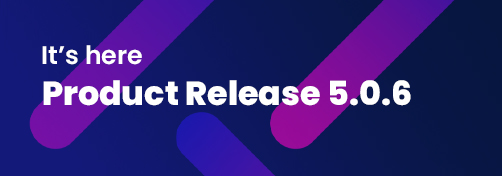PBX
A Private Branch Exchange (PBX) is a private telephone system used within an organisation to communicate internally and externally. They are easy to use and integrate with any new or existing business.
One of the key advantages of PBX systems is their user-friendly interface, which makes them accessible to employees with different levels of technical expertise.
With useful features like voicemail, call forwarding and auto-attendant menus, users can make the most of intuitive features such as voicemail, call forwarding and auto-attendant menus.
PBX systems are highly adaptable and can integrate smoothly with both new and existing business infrastructures.
Whether you’re looking to transition to a digital environment or expand your operations, PBX systems are the perfect solution to meet your evolving communication needs.
They can easily accommodate additional lines, extensions, and functionalities, ensuring straightforward communication as businesses grow and evolve.
What are the Two Types of PBX?
There are two main types of PBX systems: traditional PBX and IP PBX.
1. Traditional PBX:
Traditional PBX systems rely on analogue or digital technology to route phone calls within an organisation. They typically use physical hardware (for example, switchboards and wiring) to connect phone lines and extensions.
Traditional PBX systems are known for their reliability in the telecommunications industry. However, they may require an upfront investment and ongoing maintenance.
2. IP PBX:
IP PBX, or Internet Protocol PBX, uses the internet to transmit voice data instead of traditional telephone lines. This type of PBX converts voice signals into digital packets to improve communication across IP networks.
IP PBX systems offer advanced features such as video calling, instant messaging, and integration with other digital applications.
They are often more cost-effective and scalable compared to traditional PBX systems. This makes them a great choice if you’re looking to use internet-based communication technologies.
What Are the Benefits of a PBX System?
A Private Branch Exchange system offers many benefits for organisations, including:
- Cost Savings: Routing calls internally and using internet-based technologies can reduce long-distance and international calling costs.
- Enhanced Communication: PBX systems provide a centralised platform for voice calls, messaging, and conferencing, which makes communication easier among employees, clients, and partners.
- Scalability: PBX systems can easily scale up or down to accommodate changes in business size or communication needs, such as adding new lines or extensions.
- Advanced Features: PBX systems offer a range of advanced features, including voicemail, call forwarding, auto-attendant menus, and integration with other digital applications. This can enhance productivity and efficiency across the board.
- Improved Customer Service: With features like call routing and queuing, PBX systems can help your business manage incoming calls more effectively, leading to improved customer service and satisfaction.
- Flexibility: PBX systems can adapt to various work environments, including remote and mobile setups, allowing your employees to stay connected regardless of their location.
- Analytics and Reporting: Many PBX systems offer analytics and reporting tools that provide insights into call volume, duration, and other metrics, enabling your business to make data-driven decisions and improve your communication strategies.
Do You Need a PBX?
Effective communication is key to success, which is why a PBX system is such a useful investment for any organisation.
Firstly, a PBX system simplifies internal communication by providing a centralised platform for voice calls, messaging, and conferencing. This not only enhances collaboration among employees but also improves operational efficiency.
Secondly, the PBX system allows for simple external communication with clients, customers, and partners.
Features like auto-attendant menus and call routing ensure that incoming calls are directed to the appropriate department or individual, boosting customer experience and streamlining the communication process.
A PBX system offers advanced features such as voicemail, call forwarding, and analytics tools, which can empower your organisation to optimise your communication strategies and improve productivity.
PBX systems can also help reduce communication costs by routing calls internally and using internet-based technologies for long-distance and international calls.
So, whether you're a small startup business or a large enterprise, a PBX system can help grow your business. If this is something you would like, then a PBX system may be the solution for you.
How Long Does a PBX System Last?
The lifespan of a PBX system can vary depending on different factors, including the quality of the hardware, software updates, maintenance, and technological advancements.
A well-maintained PBX system can last anywhere from 7 to 15 years or more. However, this may change.
Regular maintenance and timely software updates are necessary to ensure the longevity of a PBX system. Neglecting maintenance can lead to:
- System failures
- Decreased performance
- Security vulnerabilities
As your business grows and evolves, your communication needs may change. A PBX system should be flexible enough to accommodate these changes, whether it's adding new lines/extensions, integrating with other systems, or supporting remote work environments.
Is a PBX System Reliable?
Yes, a Private Branch Exchange system is generally considered reliable when properly implemented and maintained.
Many modern PBX systems offer redundancy features such as backup power supplies to ensure continuous operation even in the event of power outages or hardware failures.
Reliable PBX systems utilize high-quality hardware components that are designed to withstand continuous use and provide consistent performance.
PBX systems use security features such as encryption, access controls, and firewalls to protect against unauthorised access and cyber-attacks, so you can rest assured that your data will be stored away safely and securely.
Regular maintenance, including software updates, hardware checks, and system audits, helps identify and address potential issues before they become a problem, ensuring ongoing reliability and performance.
Reliable PBX systems are scalable, allowing organisations to easily expand or modify their communication infrastructure as needed without sacrificing performance or reliability.
A PBX system is ideal for both inbound and outbound call centres.






